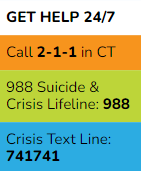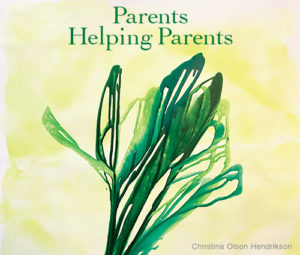Finding out that your loved one is struggling with drugs or alcohol can be heartbreaking. It can leave you feeling angry, hurt, and confused. While it is normal to feel overwhelmed right now, it is important to realize that all hope is not lost. Recovery is possible, and you can help your loved one get there.
You’re most likely wondering what you can do to help? What to say? Where to start? And while there is no set guideline as to how to handle a loved one’s addiction, there are certain “do’s and don’ts” that you should know.
Do’s
Educate Yourself About Addiction
If you have never been directly exposed to alcoholism or drug addiction, you may be misinformed about what addiction is, who it affects, and how it affects them. It is important that you do your own research so that you can better understand what your loved one is going through. The more informed you are, the more you will be able to help them. Some great resources to start with include the National Institute on Alcohol Abuse and Alcoholism (NIAAA), the National Institute on Drug Abuse (NIDA), and the Substance Abuse and Mental Health Services Administration (SAMHSA).
Address the Issue
Know that ignoring the issue won’t make it go away. So, while confronting your loved one about their addiction can be intimidating, this an important conversation that you need to have sooner rather than later. Some ways to better prepare for this conversation include: speaking to a professional, finding the right time (when they are sober), and writing down what you want to say. During the conversation, try to stay calm, be open and honest, and let them know that you are there to help them get better.
Research Treatments
Your loved one might not be ready to accept your help just yet, but that doesn’t mean that there is nothing you can do for them. You can start by researching different addiction treatment centers and their offerings. Go online, request literature, or give them a call. Explore your options and determine what would be the best fit for your loved one. The more informed you are, the more prepared you will be for they are ready to get better.
Set Boundaries
In the chaos of addiction, setting boundaries ⎼ or lines that cannot be crossed ⎼ plays an important role in assuring your well-being and hopefully, encourages your loved one to seek help. Common boundaries include not allowing your loved one to drink or use around you, setting curfews, and refusing to bail them out of legal or financial trouble. It’s important that once you set a boundary, you follow through. If there are no consequences for not following the rules, then your addicted loved one will have no reason to change. While setting boundaries can be tough or even harsh at times, boundaries help protect you and teach your loved one become accountable for their own actions.
Practice Self-Care
When a loved one is struggling with drugs or alcohol, the last thing on your mind is your own well-being. But addiction is a family disease, and whether you realize it or not, your loved one’s addiction is taking a toll on you too. Be sure to take some time to take care of yourself ⎼ exercise, eat healthy, enjoy some time outside, read a book, and do things you enjoy. Know that it’s ok for you to reach out for help, even if your loved one isn’t ready. Counseling or support groups like Nar-Anon can be great resources for support. It may seem selfish to do these things while your loved one struggles, but the truth is that you can’t help them unless you help yourself first. So, give yourself permission to reclaim your life. The happier and healthier you are, the more help you will be able to provide them.
Don’ts
Don’t Look Down on Them
Being upset at your addicted loved one is normal, but understand that addiction is a disease. They did not wake up one morning and decide to become addicted. Avoid blaming them for their addiction or looking down on them for using. There is enough stigma surrounding addiction, and what your loved one needs from you is support not judgement.
Don’t Ignore the Problem
No one ever imagines that addiction will happen to someone they know. So, when it does, it can be very difficult to accept. You may be tempted to ignore the signs of addiction, to make excuses for your loved one, or to deescalate the severity of their addiction. But trying to convince yourself that “it’s not that bad,” or that they’re simply going through a tough time or phase that they’ll snap out of is not doing your loved one any favors. Remember, addiction is a progressive disease, and your loved one will only get worse the more they use or drink.
Don’t Force Them to Quit
When it comes to addiction, tough love rarely works. Ultimatums or forcing them into treatment might work momentarily, but if they are not ready to get sober, they are likely to go right back to using the moment they leave rehab.
Don’t Enable Them
Watching a loved one’s life unravel is difficult and you are most likely doing everything you can to help. But when it comes to addiction, there is a fine line between helping and enabling. Some common ways that family members enable their loved ones include: giving them money, paying their bills, lying for them, bailing them out of trouble, and excusing their behavior. Pay attention to your behavior and ask yourself if you are truly helping them or if you’re inadvertently enabling them to continue to use and drink.
Don’t Give Up
You might become frustrated with your loved one if they refuse to get help or if they relapse, but don’t give up on them. The last thing someone struggling with addiction needs to hear is that you don’t believe they can change. If you give up on them, they are likely to give up on themselves as well. Remember, battling addiction is hard but not impossible, and having a strong support system can make all the difference.





